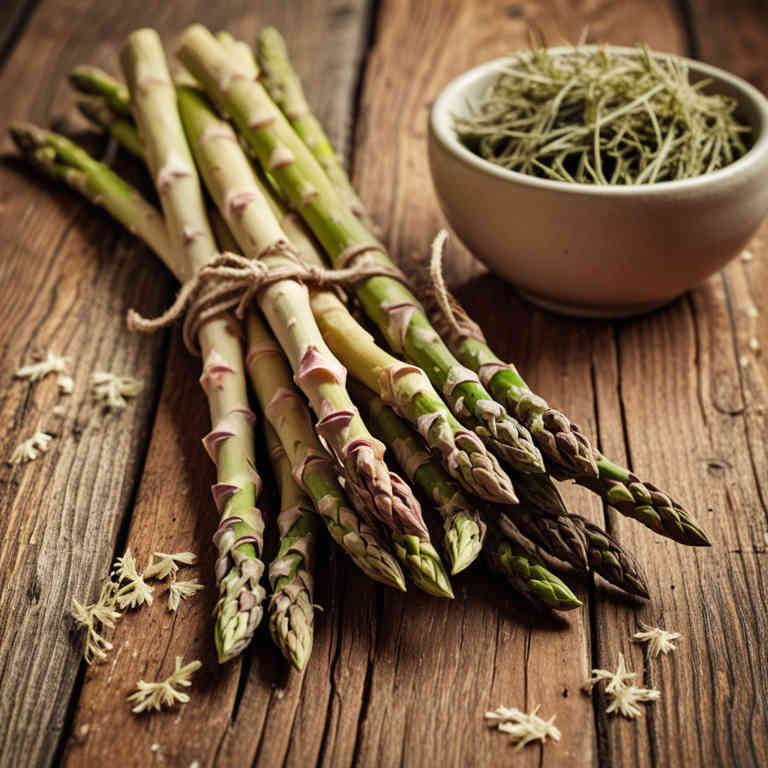Asparagus racemosus mucillage for medicinal use

Asparagus racemosus mucillage is a viscous, gel-like substance derived from the roots of the Asparagus racemosus plant, commonly known as shatavari in Ayurvedic medicine.
This preparation is rich in mucilage, which has soothing and demulcent properties. It is traditionally used to support digestive health, ease inflammation, and promote the healing of mucous membranes in the gastrointestinal tract. In herbalism, it is often employed to alleviate symptoms of indigestion, ulcers, and respiratory conditions due to its protective effects on the lining of the body's internal organs.
Its gentle nature makes it suitable for long-term use in supportive herbal therapies.
Uses
Asparagus racemosus mucillage has been used to support digestive health and treat various gastrointestinal disorders for centuries in Ayurvedic medicine.
Traditionally, it was valued for its ability to balance the body's doshas, particularly Kapha, and was used to alleviate symptoms like bloating, indigestion, and constipation. In modern times, scientific research has begun to explore its potential anti-inflammatory and antioxidant properties, leading to its inclusion in some herbal formulations for digestive support. The mucilage, rich in polysaccharides, is believed to coat the stomach lining and promote a soothing effect on the digestive tract.
Today, it remains a popular natural remedy for those seeking alternative approaches to digestive wellness.
Benefits
Asparagus racemosus mucillage has health benefits such as enhancing digestive health, supporting immune function, and promoting skin health.
This herbal preparation is rich in mucilage, which acts as a natural demulcent, soothing irritated tissues in the digestive tract. It is traditionally used in Ayurvedic medicine to treat conditions like gastritis and ulcers due to its anti-inflammatory properties. The mucilage also helps in maintaining hydration and can aid in managing symptoms of respiratory conditions like coughs and sore throats.
Additionally, it is believed to have antioxidant properties that contribute to overall wellness and cellular protection.
Constituents
Asparagus racemosus mucillage active constituents include polysaccharides, saponins, alkaloids, and amino acids.
These components are known to support immune function and have anti-inflammatory properties. The mucilage content also provides a soothing effect on the digestive tract. It is traditionally used to enhance vitality and promote overall well-being.
These constituents work synergistically to contribute to various health benefits.
Preparation
To make Asparagus racemosus mucillage, start by collecting fresh or dried roots of the plant.
Wash the roots thoroughly and chop them into small pieces to increase surface area. Place the chopped roots in a pot and add enough water to cover them by about an inch. Bring the mixture to a gentle boil, then reduce the heat and let it simmer for approximately 30 minutes.
Strain the liquid through a fine mesh or cheesecloth to collect the mucilaginous substance, which can then be used as a demulcent or in traditional herbal remedies.
Side Effects
Asparagus racemosus mucillage may lead to gastrointestinal discomfort, including bloating, diarrhea, and nausea, particularly when consumed in high doses.
It may also cause allergic reactions in individuals sensitive to plants in the Asparagaceae family. Long-term use could potentially interfere with hormonal balance due to its phytoestrogen content. There is limited research on its safety during pregnancy and lactation, so caution is advised.
Additionally, it may interact with certain medications, such as anticoagulants, increasing the risk of bleeding.